- Home
- Chris Ryan
Masters of War Page 2
Masters of War Read online
Page 2
The Paras nodded grimly.
Taff loosened his grip on the surgeon, to whom this conversation meant nothing. ‘Where’s Simon?’ he asked.
‘The husband?’
He nodded.
‘Theatre number two. I wouldn’t get your hopes up.’ With a respectful nod, the surgeon continued down the corridor. Seconds later a noise made him look back over his shoulder. Taff Davies had picked up one of the plastic chairs lining the corridor and slammed it down on the floor, while the soldiers, clearly alarmed, stood at a safe distance of a few metres. Now he was clutching his hair, and looking around with a helpless, anguished expression. The surgeon had seen many people who had lost loved ones. He could tell instantly that Taff Davies was one of their number.
The corridor was spinning. Taff could barely stand. The doors to operating theatre number one swung open. A sombre collection of hospital staff emerged, wheeling a stretcher bed. A blue sheet covered the body on the bed. He heard one of the Paras swear under his breath. The sheet had a dark stain where it had come in contact with the corpse’s abdomen. In his time Taff had seen more dead bodies than he could easily count. He’d added to them. But not all dead bodies are the same. The sight of some leave you as cold as the corpse itself.
Taff watched the bed disappear. Then he moved his substantial frame past the soldiers, in the direction the surgeon had indicated. A minute later he was outside operating theatre number two. Two nurses were standing about five metres beyond the door, talking in hushed voices, but fell silent as Taff approached. Standing by the door itself was a uniformed member of the RUC.
‘News?’ Taff asked.
The police officer shook his head.
Breathing deeply, Taff removed his wallet. His army ID was not on display, but hidden inside. He flashed the ID, which bore his name, photograph, army number and blood group, at the police officer. ‘Family friend,’ he explained.
The officer nodded.
‘Anyone asks, the nurses or anything, just tell them that.’
They stood in silence outside the operating theatre. Time passed.
At 13.24 another exhausted-looking surgeon emerged from the operating theatre. He gave the RUC man a respectful nod, then cast Taff an enquiring look. ‘Next of kin?’
‘Good as,’ Taff said.
‘He’s critical but stable. The gunshot affected part of his temporal lobe. We’ve managed to stop the internal bleeding, but there’s substantial damage to the brain. He’ll survive, but . . .’ The surgeon’s voice tailed off.
‘But what?’ Taff said.
‘The temporal lobe regulates memory, emotions, language, learning . . . We can expect full amnesia, maybe profound mental deficiency going forward. Sometimes I think it would be kinder to let patients like this . . .’ The surgeon stopped himself. ‘Maybe the amnesia’s for the best,’ he continued. ‘I hear the wife didn’t make it?’
Taff nodded.
‘Bastard Provos,’ said the surgeon with a sudden burst of anger. ‘I sometimes think they should spend a few hours on the wards, see exactly what they’re doing to people.’ He passed a tired hand over his eyes. ‘I apologise,’ he said.
‘Don’t apologise to me,’ Taff replied, his voice flat and dead. ‘The only good Provo is a dead one as far as I’m concerned. When can I see him?’
‘Not yet, I’m afraid. They’ll be moving him to intensive care at some point in the next hour or so. Speak to the ward sister. I’m sorry for your loss.’
The surgeon moved away, massaging the back of his neck as he went.
‘Kyle. Kyle? It’s me. It’s your uncle Taff.’
He wasn’t really Kyle’s uncle, of course, but he was as close as made no difference. Kyle was in a brightly coloured children’s room with snakes and ladders painted on the floor and puzzle boxes with Sellotaped corners on the shelves against one side. On the floor in front of him lay a selection of Action Man characters. In the corner of the room a uniformed female police officer and a social worker in a grey A-line skirt observed them silently.
‘How you doing, kiddo?’ Taff asked. But it was obvious that Kyle was doing shit. The kid’s eyes were bloodshot and there were scratches down his face where he’d dug into them with his nails. Ordinarily the boy would be excited to see Taff, who always gave him fifty pence for some sweets. But not now. He picked up an Action Man and slowly started smashing it against the floor. Taff put one hand on his wrist to stop him ruining the toy, but Kyle snatched it away and went on banging it on the floor. Harder and harder. Quicker and quicker. One arm split away from its body. Its head cracked. The social worker hurried forwards and gave Taff a look that suggested now would be a good time to leave. He stood up and made for the exit. When he looked back, the social worker had her arm around Kyle, but he was still destroying the toy.
The room to which they’d moved Simon was now guarded by two RUC officers, both armed and wearing body armour. The original officer was accompanying Taff. ‘This is the guy I was telling you about, fellas.’
They gave Taff a respectful nod and let him in. Taff closed the door gently behind him and turned to look at Simon. ‘Jesus,’ he breathed. ‘You look like shit.’
And he did. His bed was surrounded by medical equipment. A plastic tube emerged from his nose and cannulas sprouted from both hands. But it wasn’t the beeping of the equipment, or the drip stands, or the sinister bandaging around his head that made Simon appear so desperate. It was the look on his face. His eyes were open, but whether they saw anything was impossible to tell. His mouth was open too, and his tongue lolled to one side, a patch of white spittle just visible along one edge. Although he was conscious, he gave no indication that he was aware of Taff’s presence.
Taff leaned over the bed and looked straight into his friend’s eyes. There was nothing. No hint of recognition. The machines around the bed displayed his vital signs. Even so, Taff checked for a pulse. It was faint, but it was there. He looked down at his friend’s wrist. The letters of the regimental motto looked darker than usual against his pale skin.
Taff realised he was breathing in time with the patient. Slowly. The door opened. A female police officer who had been watching over Kyle appeared. She was holding the little boy’s hand and stood respectfully by the door while Taff finished his visit.
‘I don’t know if you can understand me, mucker,’ Taff said, loud enough for Kyle and the policewoman to hear, ‘but I hope you can. One of these days we’re going to find the bastard who did this to you. And when that happens, he’ll pay. That’s all. He’ll fucking pay.’
But Simon was in no state to answer. He continued to stare straight ahead of him. The machines keeping him alive continued to ping.
The newborn baby lay in a Perspex cot. He was tightly swaddled and fast asleep. Taff looked down at him. He remembered someone saying that babies always looked like their dads – nature’s way of stopping the father from running away. As far as Taff could see, the kid looked like neither his mother nor his father. He looked like a newborn baby, and they all looked the same.
Taff remembered the kid’s mother and his face darkened. He thought of Simon, lying there in a near-vegetative state. The image of his tattoo popped into Taff’s head. Utrinque Paratus.
‘You’ll need to be, kiddo,’ he murmured. ‘You’ll need to be.’
TWENTY-THREE YEARS LATER
ONE
‘J’ai l’impression qu’on nous regarde,’ Fatima said. I feel like someone’s watching us.
At six o’clock on weekday evenings the old tenement building on rue du Faubourg Saint-Antoine in Paris always smelled the same. It was the pungent stink of cheap cuts of meat, boiled long and slow so even the bones could be mashed with a fork, then mixed with North African spices. The meat itself was barely fit for animals, let alone humans. The spices went some way to masking the taste, and their aroma seemed engrained in the dirty brick walls. The building always sounded the same, too. Babies wailing. TVs blaring. Couples arguing. This evening was
no exception.
Fatima looked around the single room that she shared with her husband Hakim and their twin daughters. It was about six metres by four and contained a double mattress on the floor, a wooden cot and a rickety Formica-topped table with two chairs. At one end was a kitchenette – little more than a sink, a water heater and a two-ring electric hob. To the right of the kitchenette, in an alcove, were a poky bath-cum-shower and a toilet. Neither worked properly, and both stank. Through some quirk of the plumbing, whatever went down the kitchen sink reappeared in the bath, where it festered. The babies were crying. They were always crying. From hunger, mostly. Sometimes Fatima felt like joining in. Hakim, in boxer shorts and a white vest, lay on the mattress staring at the ceiling. He made no attempt to acknowledge what she’d just said. Fatima wasn’t even sure he’d heard her.
She walked to the window. It looked on to a lightwell, open to the sky and about ten metres square. On each side of this were more cramped bedsits. The concrete walls were stained by years of exposure to the elements. All the grimy windows were open on account of the suffocating summer heat.
All except one. She stared at it carefully. Had she just seen a strange dot of red light in the darkness of the flat?
She pulled her threadbare cardigan a little tighter so it covered more of her breasts, then felt the heat of Hakim’s body behind her. His hands on her shoulders. She turned and managed to smile at him. He smiled back.
‘Je pense que j’ai peut-être trouvé un boulot,’ he said over the sound of the twins’ crying. I think I might have found a job.
‘Really?’ Fatima asked, her voice neutral and her French tinged, like her husband’s, with an Algerian accent. She stepped back to the hob, on which she was boiling up meat and bones for the family. It was a conversation they had three times a week, and she was running out of ways to make it sound like she believed him.
‘Yeah, this guy . . . sells old phones in the marketplace . . . said he maybe wanted . . .’ Hakim’s voice petered out.
‘That’s great!’ she said as she stirred the contents of the pot. She drew a deep breath. ‘Hakim, maybe we should go back.’
‘What do you mean?’
‘To Algiers. We have family there, and—’
‘Don’t be stupid. You know I can’t go back there.’
Fatima turned to face him. ‘Maybe we can change our identities . . .’
But she could tell that Hakim was somewhere between panic and anger. ‘You want me to go to prison? Is that what you want? You know what they do to people in prison? Life has fucked me up the arse enough already.’
The babies’ wailing became louder. In one corner of her mind Fatima was aware that this evening they were at risk of becoming the arguing couple whose voices echoed around the whole block. She didn’t want that, and so she stepped across the room to her husband, took him by the hand and looked at him sincerely. ‘Of course not,’ she whispered. With a glance over at the steaming pot, she said, ‘I’m not so hungry tonight. We’ll feed the little ones, and then you have the . . .’
She stopped. Out of the corner of her eye she saw the red dot again, and inhaled sharply. ‘Did you see that?’
But Hakim was lying back down on the mattress, his chest rising and falling quickly as he calmed himself. ‘Nobody’s watching us,’ he said. ‘Nobody even knows we’re here. Give the kids some food. Their crying’s getting on my nerves.’
Fatima nodded. He was right. Of course he was.
So why had she just shivered, when it was so hot?
She turned her attention to her babies while her husband went back to staring at the ceiling.
The bedsit on the opposite side of the lightwell from Hakim and Fatima’s was in darkness, and almost unbearably hot since the window was closed. Two men occupied it, a squat, blond guy called Hector with a Union Jack tattoo on his forearm, and his lean, muscular companion, whose nickname was Skinner and whose real name even he himself had almost forgotten. Standing motionless, Hector was peering through binoculars mounted on a tripod into the bedsit opposite. ‘Fuckin’ Ada,’ he said. ‘I’m sweating like Jimmy Savile in a playground.’
There was a short silence, only broken by the faint crackling of Skinner’s Gitane as he dragged deeply on it.
‘Can’t you put that fucking cigarette out, mucker?’ Hector asked irritably. ‘It’s like waving a torch at them. I’m sure the bird just looked straight at us.’
Skinner sniffed, then took another drag before he answered. ‘We’re wasting our time here anyway,’ he said, his cockney accent strong, though not quite as strong as Hector’s. ‘We can sort this Algerian fuck-knuckles in our sleep.’
Hector pulled back from the binos and inclined his head. Skinner had a point. As far as terrorists went, the Algerian kid they had under surveillance was hardly Carlos the Jackal. Carlos the Jackass more like.
‘The sooner we make contact,’ Skinner said, ‘the sooner we can be out of this shithole. I say we do it in the morning.’
Hector looked over his shoulder. He could just make out Skinner’s silhouette slumped lazily in a chair by the door, and the red dot of his cigarette as he put it to his mouth. As he dragged on the cigarette, the glow illuminated his features. Shaved head, pronounced Adam’s apple, tattoos above the neckline of his T-shirt.
Skinner was right. The job was straightforward. And Hector sure as hell wouldn’t miss being cooped up in the sweltering room. Surveillance was always the worst part. He stepped back from the binoculars again. ‘Chuck us a tab,’ he said. Skinner threw him a cigarette. ‘We’ll do it tomorrow,’ Hector announced. ‘Happy now?’
Skinner sniffed for a second time, and dragged once more on his cigarette.
At a quarter past eight the following morning, Hakim left his wife and children in the bedsit. The kids were still crying; they had been all night. He had to get out of there. He descended one flight of stairs and paid a visit to the communal toilet. It was just a tiny cubicle with a hole in the floor and there was no light. A good thing too, because it was never cleaned, and the walls and floor were covered with dried excrement. He added to it before heading down to the ground floor and out into rue du Faubourg Saint-Antoine.
The morning was already hot, but the crowded pavements and traffic made it feel even hotter. He headed towards Bastille, not because he had any business in that direction, but because he had to walk somewhere. It was a tired part of Paris, full of immigrant stores and faces. For that reason he liked it. It meant his Algerian features were unremarkable. He passed a little café where his countrymen were in the habit of gathering to drink small cups of strong coffee and talk about the old days. Maybe in time he could make friends here. For now, he had to remain anonymous.
So instead he stepped into another café, where the coffee was cheap so long as he stood at the bar. He handed over a single euro – the last of the money he had hidden from Fatima. He was halfway through his drink before he sensed the man standing behind him.
Hakim stared over the brim of his cup into the window behind the bar. The man was squat and tanned, with bleached blond hair, freckles and the remnants of a cut on his lower lip. He carried a grey rucksack over his right shoulder. He placed a gentle hand on Hakim’s left shoulder. Hakim jabbed it away, as if he’d been electrified. His coffee sloshed over his hand.
‘Hakim?’ the man said. His voice had an accent. British? Hakim wasn’t sure.
He turned round slowly.
And then he bolted for the door.
He might have made it out into the street had a second man sitting by the door not been waiting for him to run. This man had a shaved head, sunburned skin and a pronounced Adam’s apple. As he grabbed hold of Hakim’s arm with a tattooed hand, his strength was apparent. Hakim wasn’t going anywhere so long as this guy held on to him.
‘We’re not going to hurt you,’ said the blond man in serviceable French. ‘Not unless you try to run away – in which case my friend Skinner here will break both your fucking legs.’
Skinner said nothing. He just looked at Hakim with unconcealed contempt.
‘Let’s walk,’ said the blond man. He nodded at Skinner, who manhandled Hakim out of the café and into the street. They turned right, back up towards, and then past, Hakim’s block. Skinner didn’t let go of his arm and although they attracted a few strange looks, nobody tried to help him. After a couple of hundred metres they came to a small park. Two tramps sat over on the far side sharing a bottle of unlabelled alcohol. The remaining wooden benches were vacant. Skinner forced Hakim on to one of them and, still gripping his arm, sat down to his right. The blond man sat on Hakim’s left. He rested his rucksack on his lap and, staring straight ahead, continued speaking in French.
‘Your name is Hakim al-Ashaba. Algerian. You entered France illegally with your wife Fatima and your two daughters via Marseilles three months ago. A week prior to that you were arrested parking a Toyota Corolla in front of a government building in Algiers with a boot full of plastic explosive. When an intelligence officer tried to restrain you, you punched him. He fell and hit his head on the kerb. Fatally, as it turned out, but giving you the opportunity to escape.’
The blond man’s words were sledgehammers. Each one of them was true. Hakim realised that his skin had gone clammy. He started to shake. ‘I didn’t mean to kill him,’ he said.
‘Ah,’ said the blond man. ‘You hear that, Skinner? He didn’t mean to kill him. So that’s all right.’ A pause. ‘Don’t worry, Hakim, we’re not here to turn you in. Not unless . . .’ His voice trailed away and he turned his attention back to the rucksack. He opened it.
The rucksack’s contents caused Hakim to catch his breath. It was filled to the brim with fifty-euro notes. The man lifted one of the bundles, to reveal more below.
‘Can’t be easy,’ he said. ‘You’re damaged goods for your terrorist mates back in Algiers, so they don’t want anything to do with you. You’ve got no job. A family.’

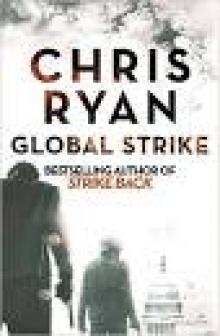 Global Strike
Global Strike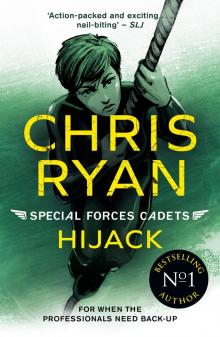 Hijack
Hijack Special Forces Cadets 2
Special Forces Cadets 2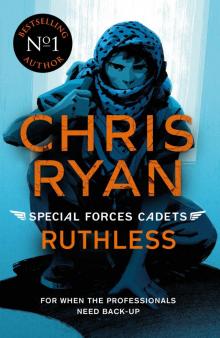 Ruthless
Ruthless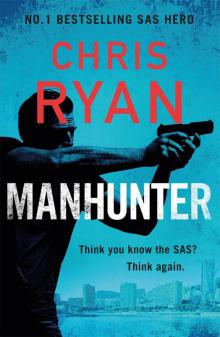 Manhunter
Manhunter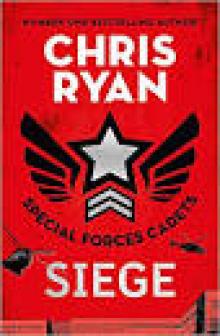 Special Forces Cadets 1
Special Forces Cadets 1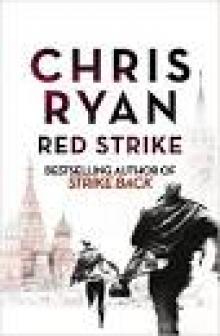 Red Strike
Red Strike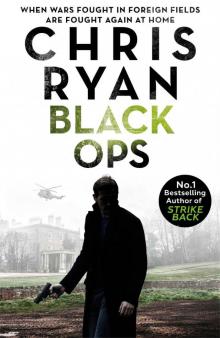 Black Ops
Black Ops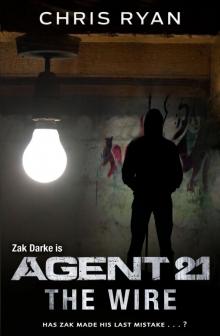 Agent 21: The Wire
Agent 21: The Wire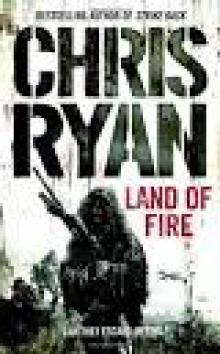 Land of Fire
Land of Fire Alpha Force: Fault Line
Alpha Force: Fault Line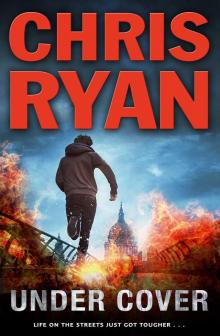 Under Cover (Agent 21)
Under Cover (Agent 21)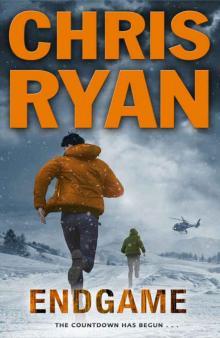 Endgame (Agent 21)
Endgame (Agent 21) Red Centre
Red Centre Blackout
Blackout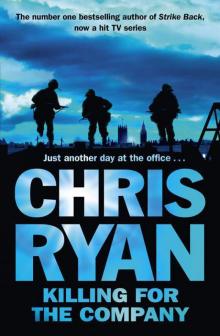 Killing for the Company
Killing for the Company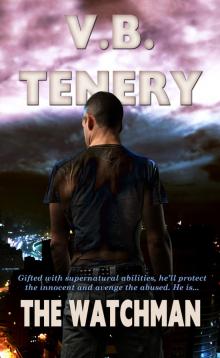 The Watchman
The Watchman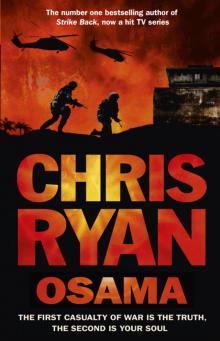 Osama
Osama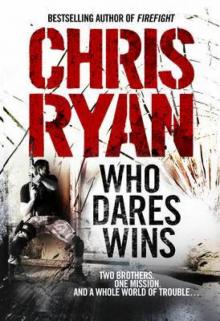 Who Dares Wins
Who Dares Wins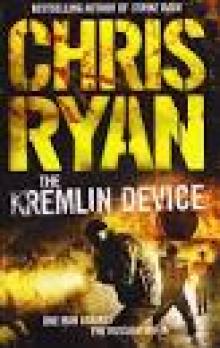 The Kremlin Device
The Kremlin Device Hunter Killer
Hunter Killer Alpha Force: Untouchable
Alpha Force: Untouchable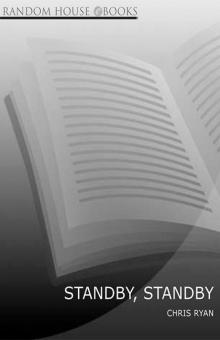 Stand By Stand By
Stand By Stand By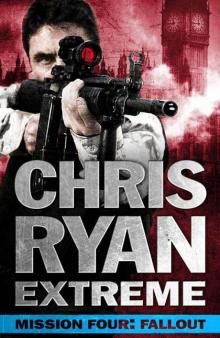 Chris Ryan Extreme: Hard Target: Mission Four: Fallout
Chris Ryan Extreme: Hard Target: Mission Four: Fallout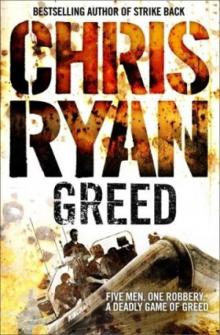 Greed mb-1
Greed mb-1 Alpha Force: Desert Pursuit
Alpha Force: Desert Pursuit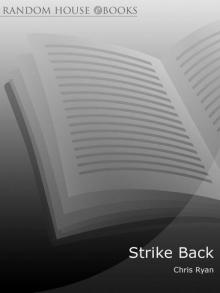 Strike Back
Strike Back Greed
Greed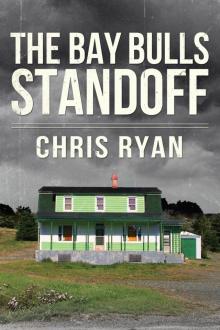 The Bay Bulls Standoff
The Bay Bulls Standoff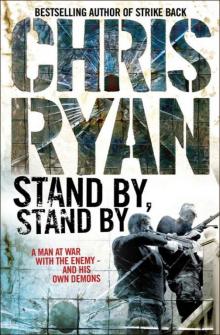 Stand By, Stand By gs-1
Stand By, Stand By gs-1 Outbreak
Outbreak Hunted
Hunted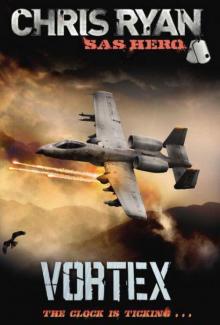 Vortex cr-4
Vortex cr-4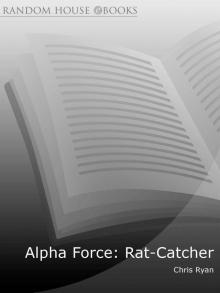 Rat-Catcher
Rat-Catcher Vortex
Vortex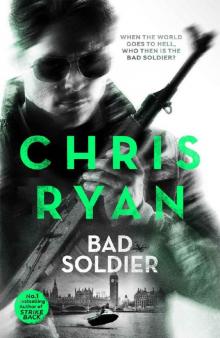 Bad Soldier
Bad Soldier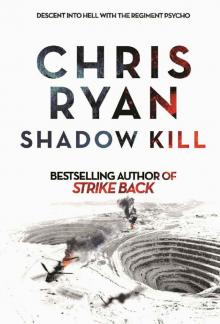 Shadow Kill: A Strikeback Novel
Shadow Kill: A Strikeback Novel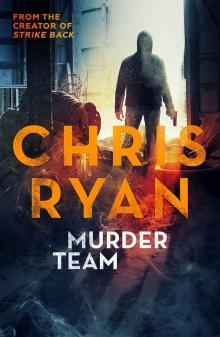 Murder Team (Kindle Single)
Murder Team (Kindle Single) One Good Turn
One Good Turn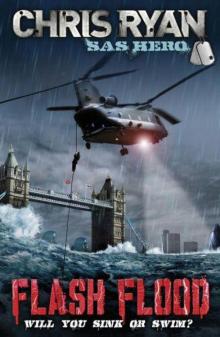 Flash Flood cr-1
Flash Flood cr-1 Night Strike
Night Strike Wildfire
Wildfire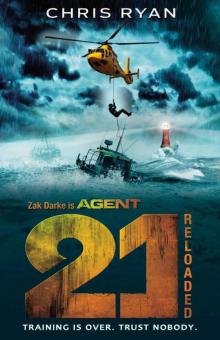 Agent 21: Reloaded: Book 2
Agent 21: Reloaded: Book 2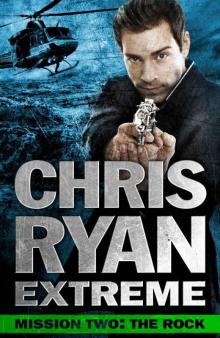 Chris Ryan Extreme: Hard Target: Mission Two: The Rock
Chris Ryan Extreme: Hard Target: Mission Two: The Rock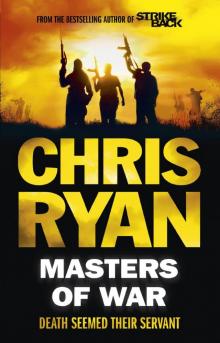 Masters of War
Masters of War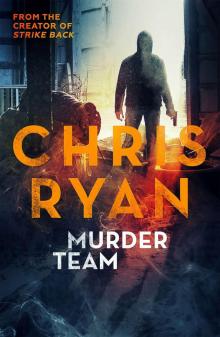 Murder Team
Murder Team War Dog
War Dog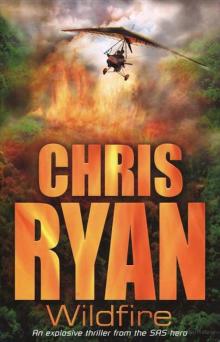 Wildfire cr-2
Wildfire cr-2 Survival
Survival The One That Got Away - Junior edition
The One That Got Away - Junior edition The Hit List
The Hit List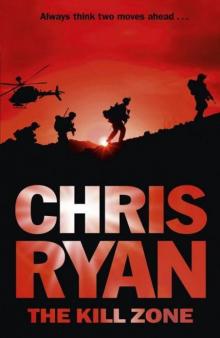 The Kill Zone
The Kill Zone Medal of Honor
Medal of Honor Battleground
Battleground Twister
Twister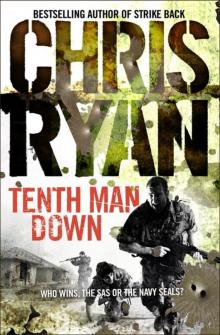 Tenth Man Down gs-4
Tenth Man Down gs-4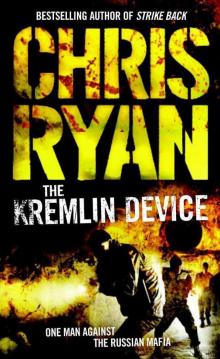 The Kremlin Device gs-3
The Kremlin Device gs-3 Hostage
Hostage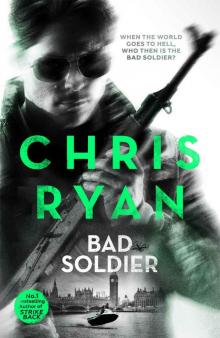 Bad Soldier: Danny Black Thriller 4
Bad Soldier: Danny Black Thriller 4 Alpha Force: Blood Money
Alpha Force: Blood Money Firefight
Firefight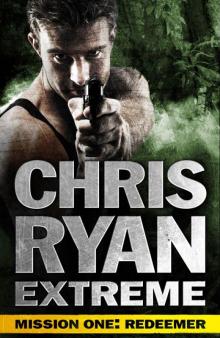 Chris Ryan Extreme: Hard Target: Mission One: Redeemer
Chris Ryan Extreme: Hard Target: Mission One: Redeemer Hit List
Hit List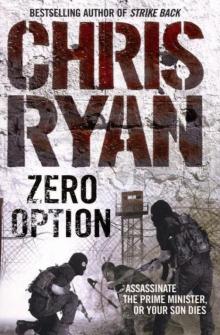 Zero Option gs-2
Zero Option gs-2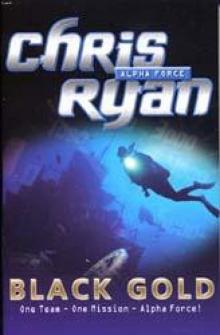 Black Gold
Black Gold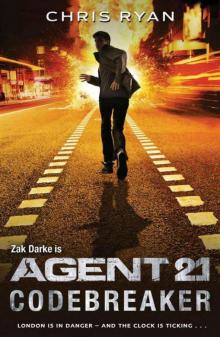 Agent 21: Codebreaker: Book 3
Agent 21: Codebreaker: Book 3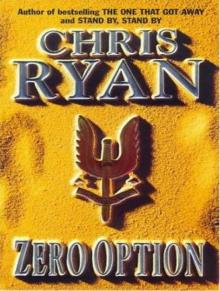 Zero Option
Zero Option Ultimate Weapon
Ultimate Weapon Tenth Man Down
Tenth Man Down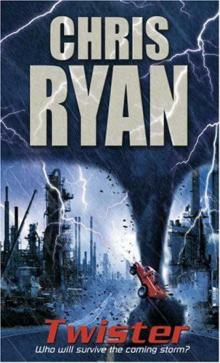 Twister cr-5
Twister cr-5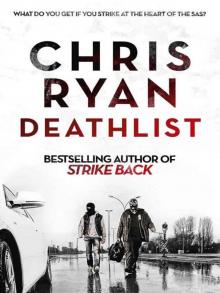 Deathlist
Deathlist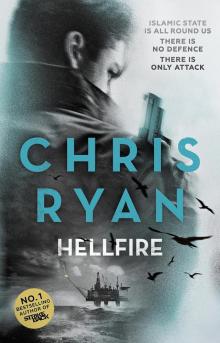 Hellfire
Hellfire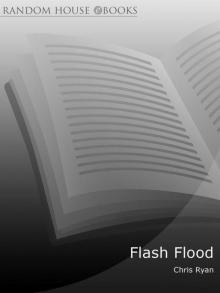 Flash Flood
Flash Flood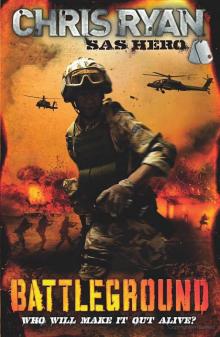 Battleground cr-6
Battleground cr-6 The Increment
The Increment